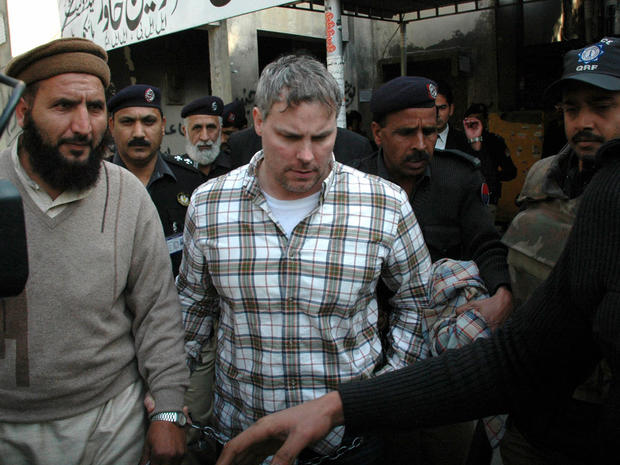Pakistan delays ruling on CIA worker's immunity
This story was filed by CBS News' Farhan Bokhari in Islamabad.
A Pakistani provincial high court on Monday declined to rule on whether Raymond Davis, a CIA contractor arrested on charges of murder, is immune to prosecution in the country due to his claimed status as a diplomat. The court's move may delay resolution of a difficult dispute that continues to drive a wedge between the United States and Pakistan.
Davis was arrested on Jan. 27 in Lahore, northwest Pakistan, after he shot and killed two young men who he says were armed and trying to rob him.
Since his arrest, President Obama's administration has pressed Pakistan to release Davis on the grounds that as an American diplomat serving in the country, he is immune from prosecution. Pakistan's foreign ministry, however, has thus far refused to certify Davis as a diplomat armed with immunity, arguing he was never given the designation before the killings.
The Davis case has become the most serious irritant in Washington's security relations with Islamabad since the two countries became allies in the global war on terror after the New York terrorist attacks.
On Monday, Ejaz Chaudhary, chief justice of the provincial high court of the Punjab province in Lahore ruled; "The case is in a trial court. It will decide on his immunity."
Judge Chaudhary's decision now refers the matter of Davis' immunity back to a lower Pakistani court, where he also faces charges of murdering the two young men.
"It seems the case may continue for some time more," a Pakistani foreign ministry official tells CBS News on condition of anonymity.
"The danger is that this matter will now get dragged on and that it will keep on adding strains to this (US-Pakistan) relationship," added a Western diplomat in Islamabad.
Lieutenant General (retired) Talat Masood, a recognized expert on Pakistan's security and foreign policy, warned that a prolonged dispute surrounding the Davis case would harm the interests of both the United States and Pakistan.
"The two countries are locked together in a close relationship. Pakistan and the United States need each other to be friends for stabilizing the Afghanistan-Pakistan region. This relationship is too precious to be put at stake because of this one case," Masood tells CBS News.
Pakistani officials have said a quick end to the case may only be possible if President Asif Ali Zardari grants Davis an official pardon. However, the officials warn that with anti-U.S. sentiment widespread in the Asian nation, that expeditious resolution may clash with sentiment on the streets.
On Monday, after the court hearing in Lahore, some young men gathered outside the Punjab high court to demand that Davis be tried under Pakistani law.
"Murder must never be allowed to go unpunished," college student Ghulam Rasool told CBS News.
Saeed Minhas, an office worker who also joined the demonstration, echoed the sentiment. "Americans are no friends of Pakistan. We must give an exemplary punishment to Raymond Davis. He must be punished, hanged if needed, to uphold Pakistan's law."
